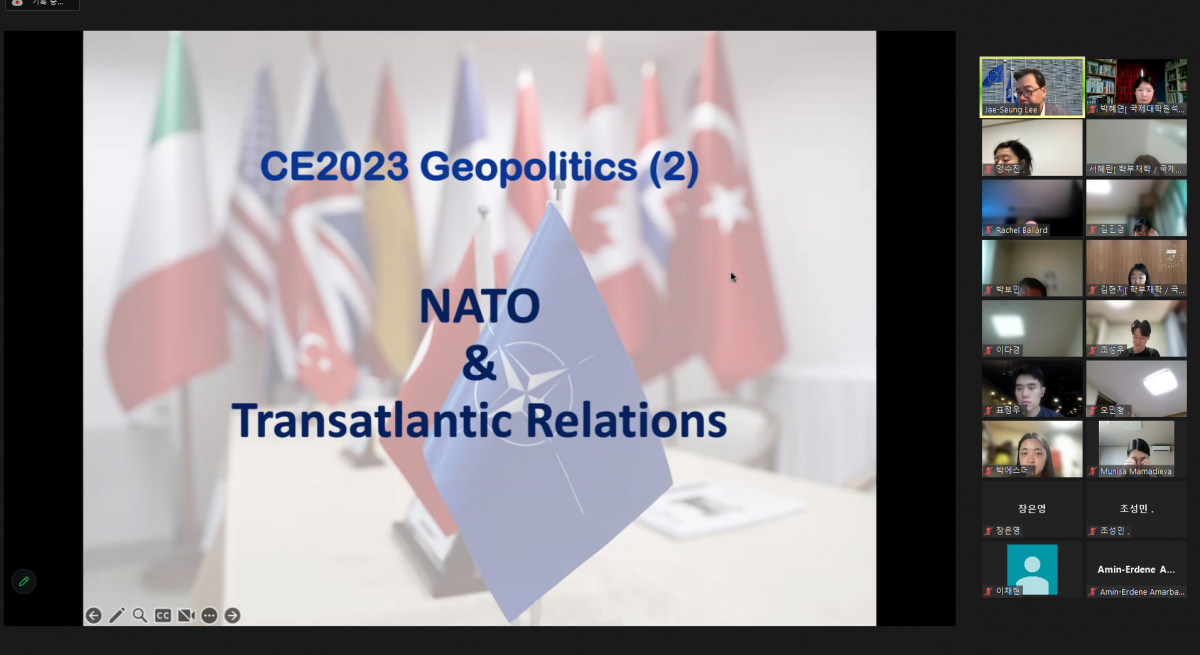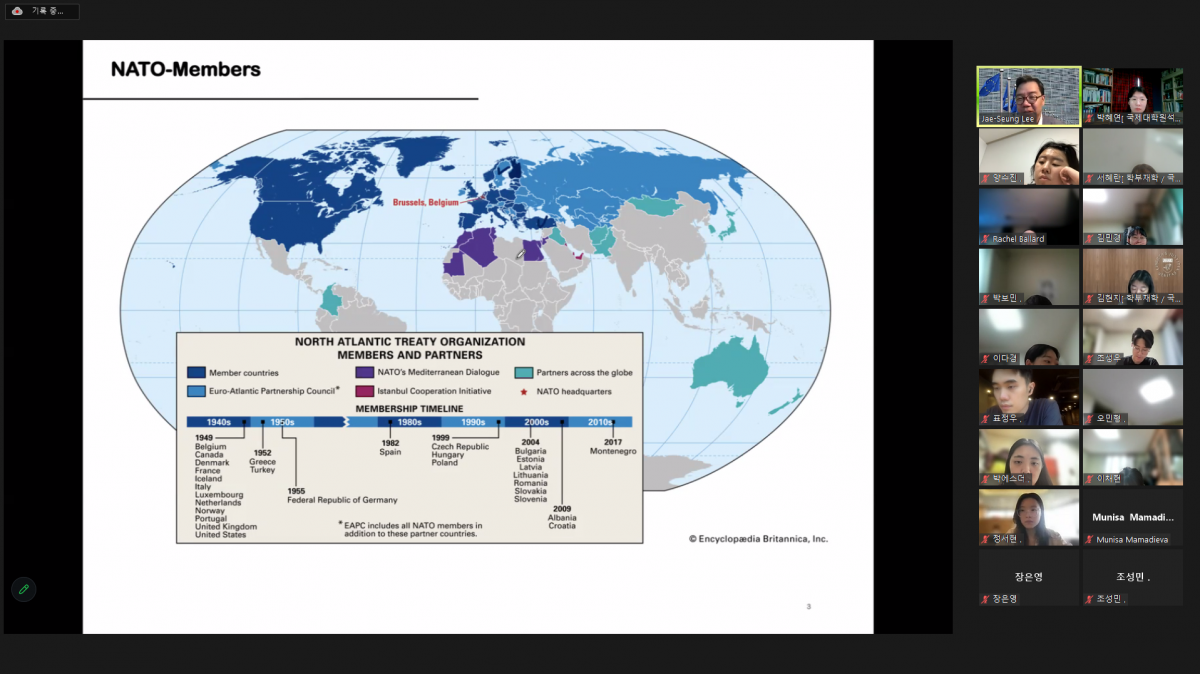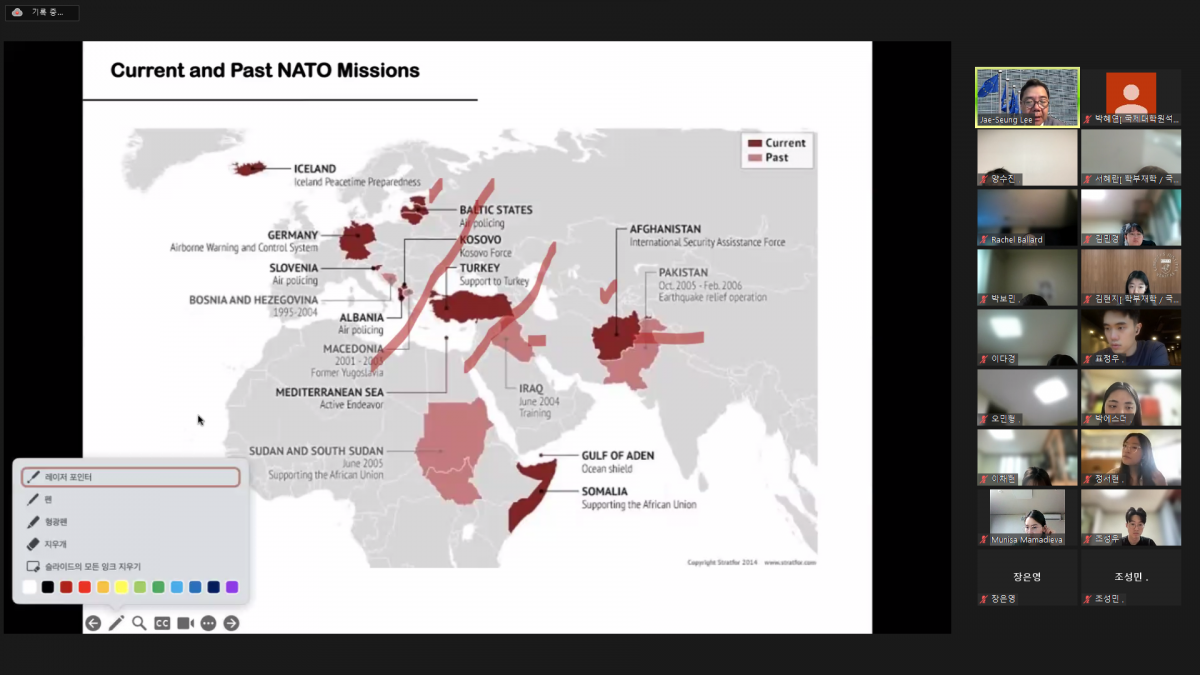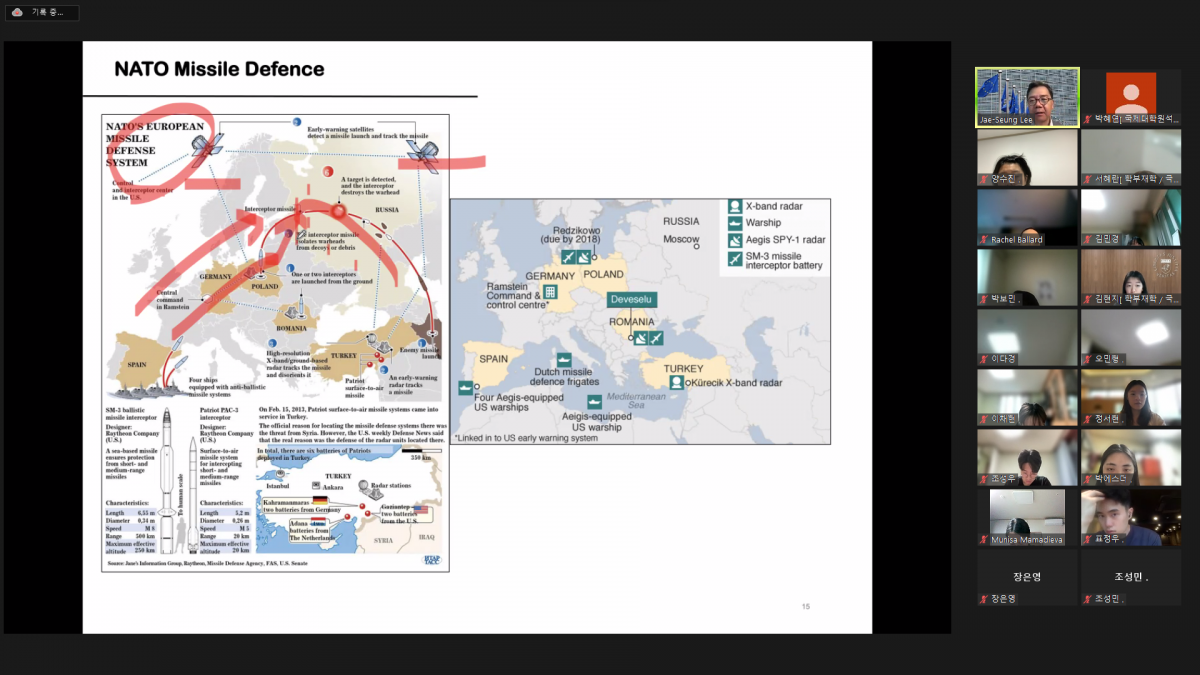Summer School 2023 <Contemporary Europe> Session 5
페이지 정보

본문
Professor Jae-Seung Lee continued on the geopolitics section of <Contemporary Europe> class. Session 5 dealt largely two parts: NATO and Finland. Professor introduced the basic history and purpose of NATO, which is based on balance of power and collective defense. NATO members operate on several clauses, but the most important one is Article 5, a strong promise on collective defense. Any attack towards a member state would be regarded as an attack to all of the alliance, and they would retaliate. This transatlantic alliance includes most of the Europe and the United States. It was born in the context of the cold war, but survived after the collapse of the Berlin wall. The organization then changed to keep peace in the continent, going through the major expansion in early 2000s and later again in 2009. The outstretch of NATO members’ border had greatly displeased Russia, which the nation claims is the reason it had to stop Ukraine. Until recent Russian invasion on Ukraine, NATO had been constantly losing its footing. The members did not keep the promise for defense spending, which the former US president, Donald Trump heavily criticized on. The missions focused more on cybersecurity or war against terror rather than actual military operations, where even French president doubted the significancy of the alliance. But the skeptics lost the support since 2022, when Russia proved that peace was not taken for granted and there is still need for defense alliance in the 21st Century.
When discussing NATO, a path toward NATO or neutrality should not be left out. Finland is a Northern European country between Russia and Europe that had been struggling to survive. The word ‘finlandization’ had been popular in international relations, as Finland’s aversion to taking clear side but surviving on its own had been quite effective, although the term implied subtle insult towards the nation. Finland is the nation that went through the war with Russia and did not lose, which is enough defeat for Russian army. Winter war, and consequent war in Lapland had led to Finno-Soviet treaty, where Finland signed the Agreement to Friendship, Cooperation, and Mutual Assistance. Paasikivi and Kokkonen, two presidents of Finland had managed to keep sovereignty and democracy to the island in post-war era. The decision to join the EU in 1990s but not NATO indicated a thin line Finnish diplomacy had been walking on. The neutrality was broken in 2023, which signifies the changing geopolitics in Europe at the moment.
첨부파일
-
Session 5_Geopolitics.pdf (7.7M)
27회 다운로드 | DATE : 2023-07-24 09:51:10
- 이전글Summer School 2023 <Contemporary Europe> Session 6 23.07.11
- 다음글Summer School <Contemporary Europe 2023> Session 4 23.07.11
댓글목록
등록된 댓글이 없습니다.














